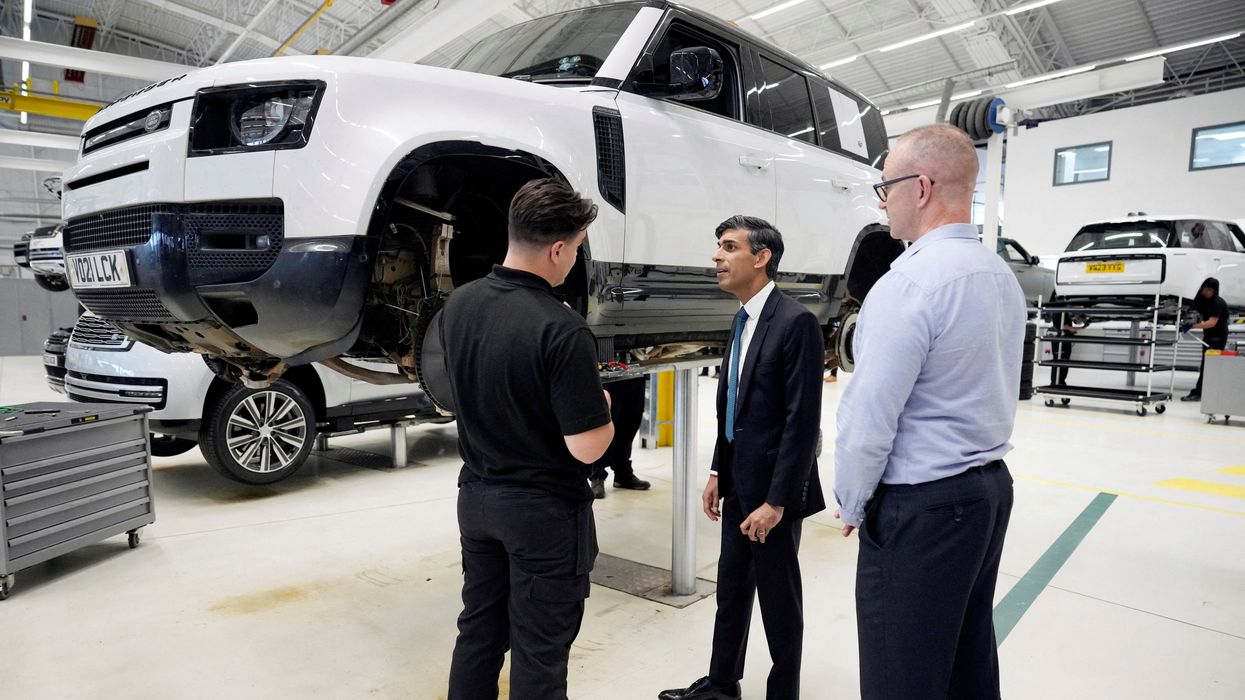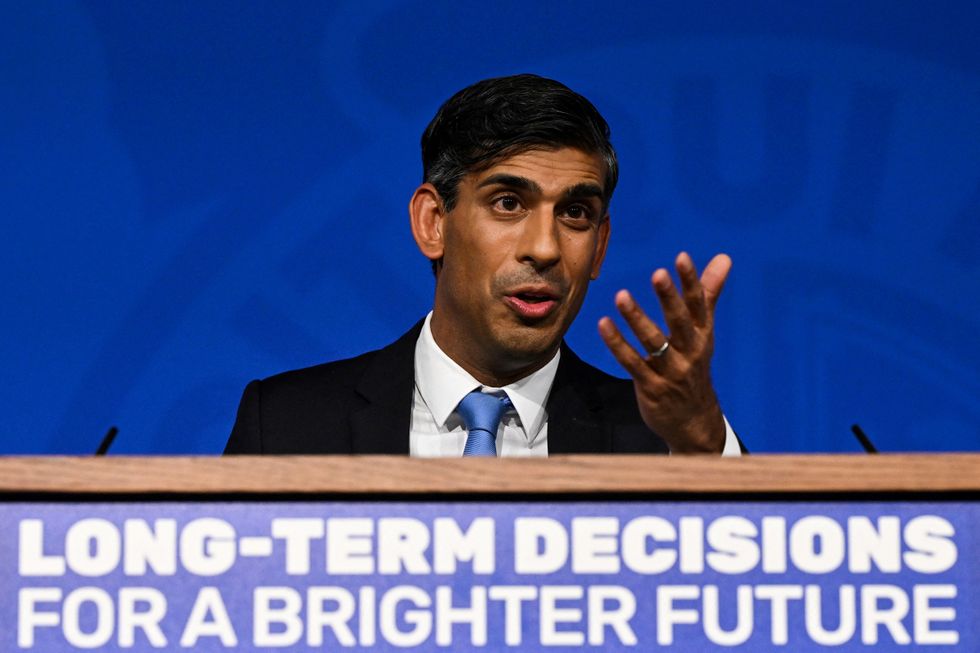Rishi Sunak making 'big mistake' and 'behaving like a teenager' over petrol and diesel car ban

Rishi Sunak pushed back the deadline for sales of new petrol and diesel cars
|REUTERS

The Prime Minister predicted that the majority of cars sold in 2030 would be electric
Don't Miss
Most Read
Latest
The deadline to ban the sale of new petrol and diesel vehicles has been extended to 2035 after the Prime Minister unveiled an overhaul of net zero pledges, which has led to split opinions.
Speaking yesterday afternoon, Rishi Sunak moved the deadline from 2030 to 2035 to restrict the sale of internal combustion engine vehicles.
He said “the vast majority of cars sold” by 2030 will be electric and pointed to reducing costs, improving range and growing charging infrastructure.
However, he said drivers should have the freedom to choose to get an electric car, rather than have the Government force motorists into switching.
WATCH NOW: Labour's response to car ban
This will not be the final deadline, with drivers still able to buy second-hand and used ICE vehicles after that, bringing the UK into line with the European Union, Canada and Australia.
The decision was met with mixed reviews from drivers and those in the automotive industry, with some saying it would hamper uptake of EVs, while others said it was putting power back into the hands of drivers.
Ginny Buckley, founder and CEO of Electrifying.com, slammed the proposals, branding it a “big mistake” and saying it would create issues for car makers.
She said: “The Prime Minister is behaving like my teenage son; pushing aside the tough stuff to get it done later.
“Putting the brakes on the ban is a big mistake; by turning this into a political issue and kicking the can down the road he’s creating uncertainty for the car industry and the wider ecosystem, which is collectively planning to invest billions of pounds into the transition.”
The plan to ban the sale of petrol and diesel vehicles was originally introduced in 2020, with the Conservative Government hailing the plans, saying the UK was going further and faster than any other major economy to decarbonise transport.
Drivers would have had a “buffer” of five years, allowing them to brace for the complete phase-out of ICE vehicles with hybrid cars and vans only being banned in 2035.
Sally Foote, UK managing director at carwow, said many drivers would be “frustrated” by the change and called for “clarity, support and an assurance the goalposts won’t move again”.
She added: “Manufacturers and motorists alike have been making huge changes since the Government set out its target to phase out new petrol and diesel vehicles by 2030.
"All this positive progress as we transition towards electric vehicles risks being undermined by the announcement, which could send the message that going green isn’t that important. It’s also hard for industry and consumers to be sure there won’t be further changes.
"At a time when we’re all adjusting to new policies like the expansion of clean air zones across the country, this decision only adds further confusion when greater stability is what’s needed.”
Many automotive manufacturers have also pledged to not move from their own goals to end the sale of new petrol and diesel vehicles, including Stellantis and BMW, which owns the Mini brand.
LATEST DEVELOPMENTS:

The Prime Minister also pushed back the ban on off-grid oil boilers to 2035
|REUTERS
Labour’s shadow environment secretary, Steve Reed, said the party would reinstate the 2030 deadline if it wins the next general election.










